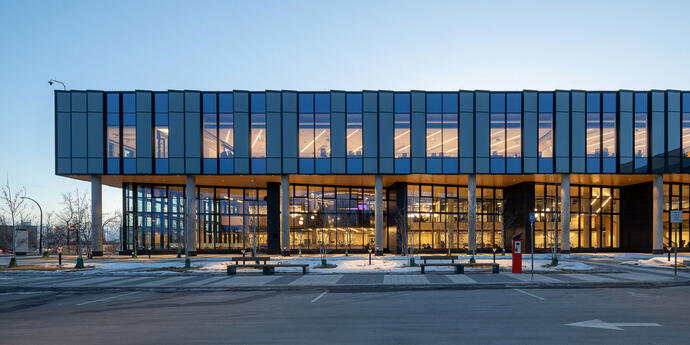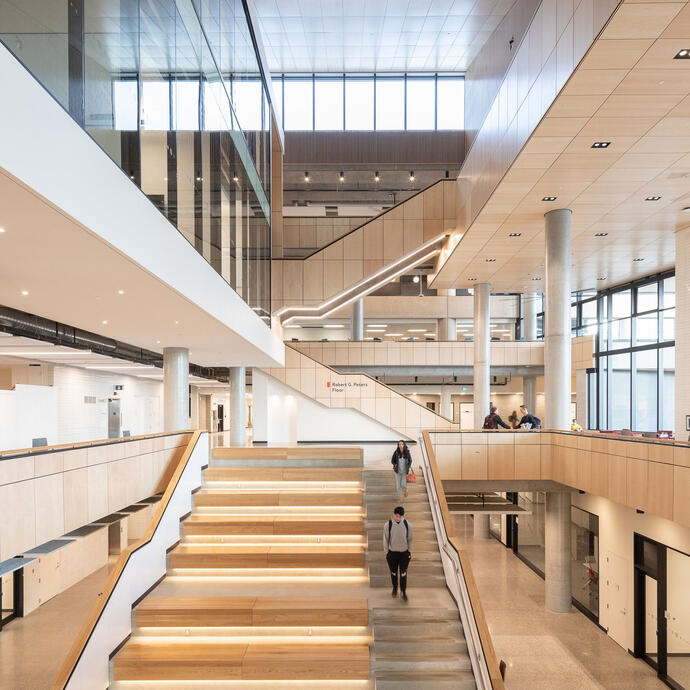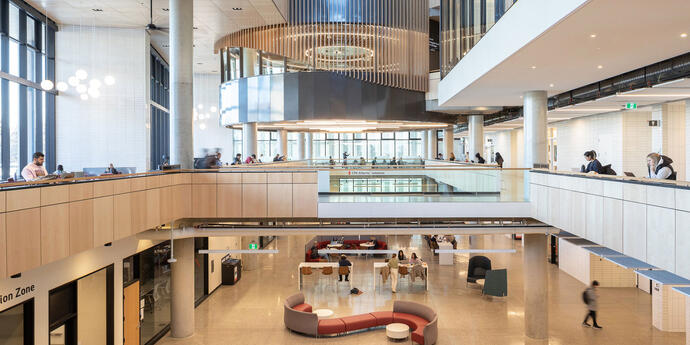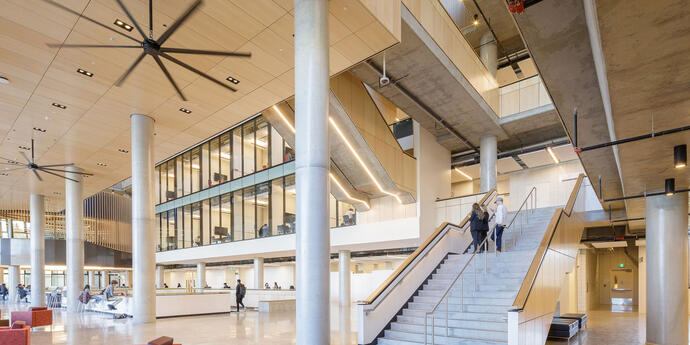
Consulting Engineers of Alberta, Award of Excellence – Building Engineering (Institutional) (2024)
Designed for diverse learning.
The technology-rich, innovative environment of Mathison Hall is designed to facilitate all types of learning (and networking opportunities) for students at the University of Calgary’s Haskayne School of Business. The new four-storey building is connected to the existing Scurfield Hall, and includes a new 300-seat auditorium, a student success centre, and dedicated space for activities focused on entrepreneurial thinking. It is one of a number of projects that Smith + Andersen has worked on at the University of Calgary campus. We were engaged as a prime consultant for the project, providing mechanical engineering services for this state-of-the-art building. Footprint is engaged to provide energy modelling for the project.
Designed for diverse learning.
The technology-rich, innovative environment of Mathison Hall is designed to facilitate all types of learning (and networking opportunities) for students at the University of Calgary’s Haskayne School of Business. The new four-storey building is connected to the existing Scurfield Hall, and includes a new 300-seat auditorium, a student success centre, and dedicated space for activities focused on entrepreneurial thinking. It is one of a number of projects that Smith + Andersen has worked on at the University of Calgary campus. We were engaged as a prime consultant for the project, providing mechanical engineering services for this state-of-the-art building. Footprint is engaged to provide energy modelling for the project.

Business of the future.
The client required technologically enhanced classrooms and workspaces, as well as an overall design that looks great and will achieve LEED Platinum sustainability performance.
Our design incorporates high-efficiency mechanical systems, such as radiant heating and cooling, as well as heat recovery, to make each space comfortable to teach, learn, and socialize in. An underfloor air distribution reduces Thermal Energy Demand Intensity (TEDI) to less than 36 kWh/m2/year, which assists with the project’s goal to meet Net Zero Carbon certification according to the principles of the Canadian Green Building Council’s certification program. Energy modelling was carried out by Footprint to evaluate the energy performance of the expanded space.


